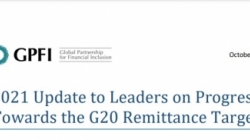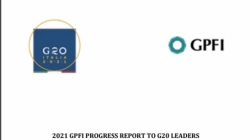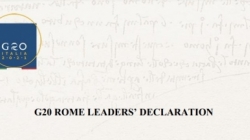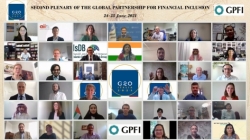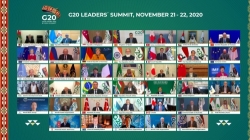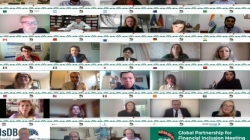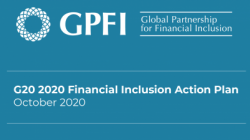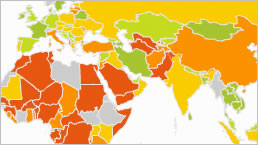News
Nov 18, 2021 |
GPFI News
The document reviews the more recent evolution of remittances transfer costs as well as the progresses accomplished by G20 countries in the realisation of their respective 2019 National Remittances Plans.
Nov 18, 2021 |
GPFI News
Under the Italian G20 Presidency, the GPFI took stock of countries’ strategies to tackle the challenges and seize the opportunities for financial inclusion posed by the pandemic. In line with the objectives of the G20 2020 Financial Inclusion Action Plan, and building upon the far-reaching work done during past G20 Presidencies, GPFI implementing partners have produced six reports, which present the policy responses and innovative approaches that have proved effective in mitigating the impact of the crisis and could guide policymakers in designing the recovery phase with a view to the future:
Nov 18, 2021 |
GPFI News
In compliance with the provisions set out in the 2020 Financial Inclusion Action Plan and the Terms of Reference – as approved in October 2020 under the Saudi Arabia G20 Presidency – the Co-Chairs Magda Bianco and Anna Zelentsova have drawn up the first edition of the Report. Its aim is to summarise the progresses achieved by the GPFI throughout 2021 under the Italian G20 Presidency.
Nov 18, 2021 |
GPFI News
On 30-31 October 2021 the G20 Leaders met in Rome to address the most pressing global challenges and to converge upon common efforts to recover better from the COVID-19 crisis and enable sustainable and inclusive growth.
Aug 9, 2021 |
GPFI News
The first day of the meeting was dedicated to remittances. Important objectives have been achieved in this area, especially in reducing the average cost of transfers. However, it appears to be necessary to continue to monitor the market at an international level to continue on a path of ever-greater efficiency. The offer conditions and service levels are not yet satisfactory, especially for some corridors and for some countries. These activities are even more critical if one consider that, despite the difficulties posed by the pandemic, the flows of remittances have remained substantially stable, confirming that they are a necessary and irreplaceable source of funding for recipient families in the poorest countries.
Apr 6, 2021 |
GPFI News
During the meeting, which was divided into four sessions, the Group members discussed the GPFI work programme for the upcoming year, based on the priorities established by the Presidency and the commitments in the GPFI's Financial Inclusion Action Plan (FIAP). The focus of the meeting was on the best strategies to increase citizens' and businesses' awareness of digital finance opportunities and of the safeguards aimed at protecting them from the risks of financial exclusion. The GPFI also addressed the issue of migrants' remittances.
Click here to read the plenary agenda.
Nov 30, 2020 |
GPFI News
In the G20 Riyadh Summit Leaders’ Declaration, the G20 Leaders have stated the following “We also endorse the G20 High-level Policy Guidelines on Digital Financial Inclusion for Youth, Women, and SMEs prepared by the Global Partnership for Financial Inclusion (GPFI). We welcome the 2020 G20 Financial Inclusion Action Plan, which will guide the work of the GPFI for the next three years.”
Nov 20, 2020 |
GPFI News
Learn more about the G20 National Remittance Plans.
Oct 20, 2020 |
GPFI News
In addition, GPFI members were provided with an overview of the G20 Financial Inclusion Action Plan Progress Report 2017-2020; the finalized 2020 Financial Inclusion Action Plan (FIAP), which reflects the future work of the GPFI for the next three years; and the 2020 Terms of Reference (ToR), which is the last milestone that marks the completion of GPFI’s work program and structure on streamlining “A Roadmap to 2020” that was mandated by leaders in 2018.
Oct 20, 2020 |
GPFI News
The GPFI will be responsive to new global issues as they arise, adequately frame the Partnership’s work to reflect current circumstances and address the crisis impact and the post-crisis economic effects. The GPFI reaffirms the G20 Leaders’ commitment to advance financial inclusion benefiting all countries and all people, including vulnerable (such as elderly people, migrants and forcibly displaced persons) and underserved groups (including the poor, women, youth, and people living in remote rural areas).


